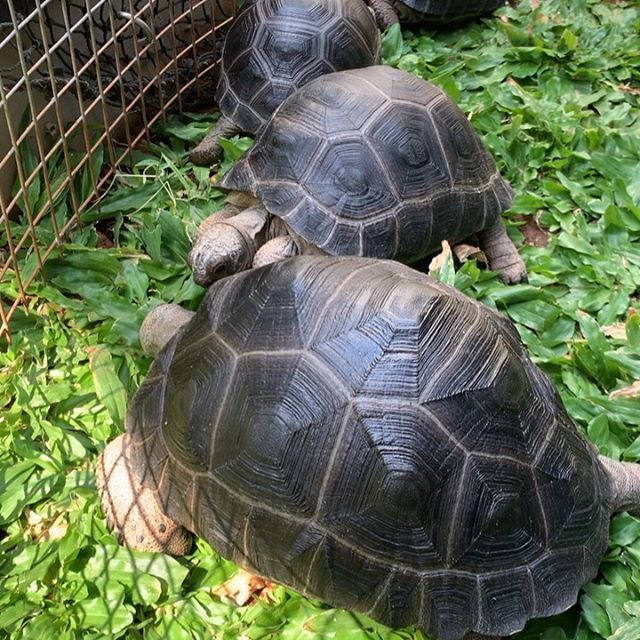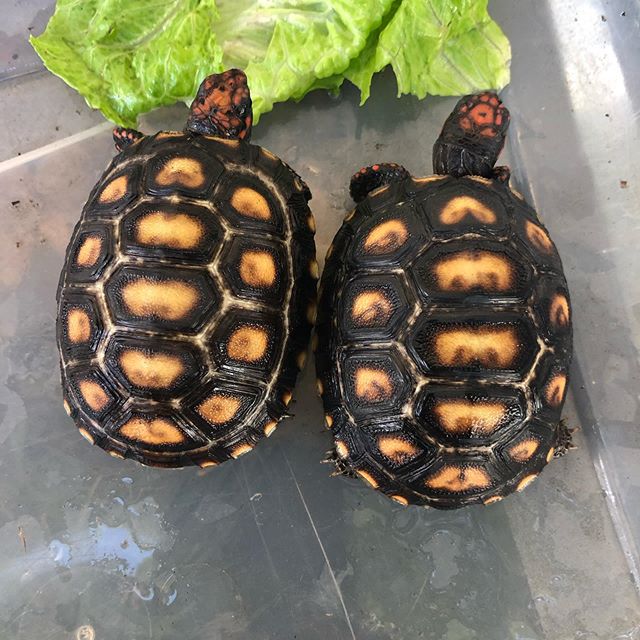Your cart is currently empty!
Cherry Head Tortoise
$145.00
Cherry Head Tortoises AldabraTortoiseFarm Baby cherry head tortoises are very Easy to care for, Grows up 24″ or 120+ lbs., cherry head tortoise Lifespan 55-110+ years, Requires a warm habitat above 78 Degrees. Currently Feeding on Greens and Veggies and Mazuri, One of the largest species of tortoise for sale once mature, Docile and calm…
Description
Cherry Head Tortoise for export
Aldabra Tortoise Farm has the nicest captive bred baby cherry head tortoise for sale. Cherry head tortoise are a cousin of both the red footed tortoise and the yellow foot tortoise for sale.Also known as the baby Cherry Head Red-Footed Tortoise for sale
Since they are technically the same type of tortoise as the baby red-footed tortoise, baby cherry head tortoise for sale, or cherry head red foot tortoise, have the same Latin name of Geochelone carbonaria. The baby cherry head red-footed tortoise for sale has identical care requirements of a baby red foot tortoise. Also, they are considered a smaller variant of the larger red-footed tortoise and are closely related to the yellow-footed tortoise. Cherry heads are actually the smallest of the red footed tortoise family. While red foots and yellow footed tortoises reach 11-14″ in size, Cherry heads normally are 8-10″ at full maturity. Keeping a cherry head tortoise is fairly easy and identical in care to their cousins.
About
Interestingly enough, some believe the baby cherry head tortoise were intentionally bred to be small red-footed tortoises but in fact, they are actually native to Brazil. Secondly, the smaller variation of red footed tortoise is an Eastern variant which sports a red head and was named the cherry head tortoise for sale in the pet trade. Lastly, they are known as Brazilian cherry head tortoises. Brazilian baby Cherry head tortoises are often found along rivers and close to the edge of forests. Red-footed tortoise for sale are very popular pet tortoises they’ve have become a vulnerable species for extinction in the wild. Most because of people catching them and selling them as pets. Lastly, captive bred baby cherry head tortoise for sale are available so you should never purchase a wild-caught tortoise.
Cherry head red-footed tortoises for sale live up to 50 years in captivity and possibly even longer. They are definitely a long-term commitment like many other types of tortoises.
Feeding
In the wild, baby cherry head tortoises are omnivores. Because of this, they tend to eat a wider range of foods than many other tortoise species. Keeping in mind that it is very important not to feed a lot of animal protein. Providing Mazuri tortoise food twice weekly in addition to high quality greens covers the protein requirements nicely. (e.g., one ounce for a full-grown cherry head red-footed tortoise) . Most importantly, a variety of fresh, dark, leafy greens such as dandelion greens, endive, mustard greens, and escarole (but monitor the calcium to phosphorous ratios of these greens), leafy and green vegetables, and fruits should also be fed (they also tolerate fruit better than many other species). Lastly, a calcium and vitamin D3 supplement should be used a few times a week on the food as well. At tortoise town, we dust our food twice a week with a 50/50 combination of calcium with D3 and reptile vitamins.
Size of Cherry Head Red-Footed Tortoise
Adult cherry head red-footed tortoises are typically under 12 inches in length. As a matter of fact, cherry head torts are the smallest of the bunch. (Red foot, yellow foot and CH)
UVB
Did you know that Cherry Heads, like both red footed tortoise for sale and yellow foot tortoises are a forest species? Cherry head red foots require less UVB than most species of tortoises for sale. Because they’re a forest species, and they have a wide varied diet, they do not require as much UVB exposure as other species of baby tortoise for sale.DIET
Unlike some other species, Cherry heads eat a varied diet that includes more protein than most species of pet tortoise for sale. We feed a variety of greens like collard, mustard and beet greens. In addition, we also provide Mazuri tortoise chow for vitamin D3 and protein content. Lastly, we always include fresh fruit with our Cherry head feedings. Provide fruit like papaya, strawberry, apple and melon at least once per week. Some food for thought is that the variety of high vitamin fruit led to the colourful markings on the Cherry Head. In the wild both ref foots and cherry heads eat everything under the sun, even carrion!HUMIDITY
Humidity is important for all types of baby tortoise, but especially red foots and cherry heads. Here at the tortoise farm, we keep our baby Cherry head tortoise for sale humidity in the 80% range. As they mature, we dial it back a bit to 65-75% for all of our cherry head tortoise. If you have trouble maintaining proper humidity, try using a reptile fogger. Using reptile foggers will make keeping high humidity much easier to manage in your cherry head tortoise habitat.WATER
Always provide your baby cherry head tortoise with a supply of fresh water. Using a terra-cotta dish works well for anything super shallow. Be sure that your baby tortoise can easily get in and out of the water dish. Shallow water is a must as baby tortoises can drown so quickly! You may find your tortoise soaking or bathing in the dish, and they will often poop while in there, so get ready to clean. Soak your baby tortoise daily for 10-12 minutes in shallow 82–85-degree water until at least 18 months of age, regardless of water access. Providing the correct water and humidity will also help your tortoise keep a bowling ball smooth shell.LIFESPAN
An Average Cherry head tortoise for sale when properly cared for is very long lived. While no one is exactly sure just how long a Cherry head red footed tortoise will live, 50-100 years is a fair assumption. Size In general, Cherry head tortoises for sale will reach sizes of 8-11″. They are typically smaller than their red footed or yellow footed cousins. Cherrys are the most colourful, and the smallest, so they are the most popular as well!HOUSING YOUR NEW RED-FOOTED TORTOISE OUTDOORS
This species is native to tropical areas and prefers a humid climate. A sturdy, escape-proof enclosure can be provided outdoors, and a sprinkler or mister can be used to increase the humidity if needed. A muddy wallow will be used as well as a pan of clean water for your tortoise to crawl into. An area densely planted with vegetation provides a cool retreat and a natural habitat. A doghouse-type shelter can be used for adult cherry head tortoises for sale and the enclosure should be heated if night-time temperatures drop below 65-70 degrees. Daytime temperatures can safely reach up to 95 degrees for a baby cherry head tortoise.


Reviews
There are no reviews yet.